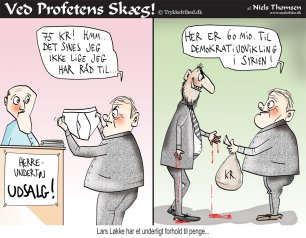Let me begin by taking you back to 1917.
Less than a month prior to the October Revolution in Russia Vladimir Lenin wrote one of his very famous letters to his comrades in arms in Petrograd.
He had just secretly returned to Petrograd from Vyborg to personally direct preparations for the uprising. He took up lodgings in a flat in a working-class neighbourhood and from there he wrote this letter, which for reasons of secrecy he called Advice of an Onlooker.
In it he set out the concrete tasks of organizing and conducting armed insurrection, which he wrote "is a special form of political struggle, one subject to special laws".
One of the things vital to the outcome of the revolution was the conquering of the lines of communication.
In his letter he wrote:
"Our three main forces – the fleet, the workers, and the army units – must be so combined as to occupy without fail and to hold at any cost: (a) the telephone exchange; (b) the telegraph office; (c) the railway stations; (d) and above all, the bridges."
And so they did, the Bolsheviks. They succeeded and since then dictators all over the world have apprehended Lenin’s lesson – First thing: Take over the telegraph.
Is Olga an American agent?
Ladies and gentlemen, you should know that the prize-winner today, Olga Romanova, is famous all over Russia. Or should I say infamous for in Russia Olga Romanova is not only known for all the good things she has done.
The other day I watched on YouTube the two last so-called documentaries that Olga Romanova has figured in on Russian national television.
They are named "Anatomy of a protest" and "They get help from abroad". Here Olga Romanova together with the rest of the opposition movement is portrayed as American agents, who have been hired by CIA or the State Department to orchestrate an orange revolution in Russia.
Their purpose, it is claimed, is to weaken Russia to an extent where the federation would fall apart so that the West could gain access to the natural riches of Russia, oil and gas.
The documentaries presented a very simple explanation why so many people took to the streets after the parliamentary elections in December: Common people were simply paid to go there by a little core of American agents including Olga Romanova.
The most recent programme, "Anatomy of a protest" was shown on NTV on March 15 and not only the content was peculiar:
Usually, when journalists produce a revealing documentary that is aired in prime time, they make sure that they are credited after the film, that their names are displayed in the crawling titles, but this was not the case with this documentary.
For some reason they were not proud. No journalists were eager to be connected to this film, and so far the journalists have preferred to stay anonymous, and the company has turned down questions about who made it.
Authorities worried
So now the question is: Why are the Russian authorities so worried about Olga Romanova and her undertakings that they have to discredit her in anonymous documentaries aired in prime time on state television?
The answer is plain and straightforward. Because it matters what Olga Romanova does. Since the authorities have taken over the telephone exchange; the telegraph office; the railway stations; and above all, the bridges – Olga Romanova has taken upon herself to build new bridges and new telegraphs between people.
She has been busy doing this all her professional life.
Until 2008 she was mainly known as an award-winning investigative journalist in the field of economics and politics, who had held a variety of posts in the media – as a columnist with the Vedomosti newspaper, as an editor and TV-host of her own show on REN-TV, as chief editor of the RussianBusinessWeek and so on and so forth.
Human rights activist
It all changed in 2008.
Since then she has gained a reputation as a human rights activist. It all began, when her husband, Aleksej Kozlov was thrown into jail because of a business dispute with a senator of the upper chamber of the Russian parliament, the federation council.
This man, Slutsker, is not a senator any more, neither does he live in Russia. He fled the country and moved to Israel.
So many business partners of his were sent to jail that he got sufficient enemies along the road, that in the end he could not stay in the country.
Olga Romanova threw all her public leverage behind her husband to get him out of jail.
She knew that he would become insane doing nothing, so she persuaded him to write a diary, which she eventually started to publish as a blog on the internet. Butyrka Blog it was named after the first prison where he was kept.
This blog attracted enormous attention from all over Russia. The reason for that is that thousands upon thousands of innocent businessmen end up behind bars in Russia every year because they stand in the way of more powerful people.
It even has a name in Russian and president Medvedev has spoken openly about it: It is called telefonnyje pravo – the law of the telephone. Somebody high up in the system will call the judge and ask for a certain verdict.
Business people are especially vulnerable because they have property.
That can be taken away from them because the concept of private ownership has never been fully recognized in Russia – not today, not in the past.
You do not own things in Russia, you control them, and the minute you lose control, your property will be taken away from you – as so many businessmen, including Western ones, have learned the hard way.
Russia behind bars
But Olga Romanova did not stop here. She created an organization, "Russia behind bars", which is today world famous and has branches all over Russia. It even has one in Vancouver.
Relatives of detainees and convicts get together and help each other with all kinds of things. Its significance is no less than that of the Russian organization "Soldiers' Mothers", which we have heard so much about in the West.
In the end Olga Romanova’s efforts bore fruit.
The public’s interest in Aleksej Kozlov’s case steadily grew and after two years of prison the Russian Supreme Court overturned his verdict and ruled that the case should start all over again.
It was the first time ever that a prisoner was freed from jail as a result of public pressure.
This might seem a victory and a turning point for the judicial system of Russia.
When I met Olga Romanova in Moscow together with her husband some weeks ago, she convinced me it was not. They both told me that Kozlov would be sent back to jail and that there was no way to prevent it.
Structurally the Supreme Court of Russia is separate from the Moscow Court where he was found guilty in the first place, so when the Supreme Court overturned the verdict of the Moscow Court, it did not interfere with the law of the telephone.
Rather, the new trial would be undertaken by the Moscow Court, which would now all the more eagerly prosecute Kozlov to show that there is no way the public can force its will upon the all powerful system.
If Kozlov was found innocent, he would be able to press charges against the first judge, who was promoted after the first verdict, and that first judge is today a higher judge within the Moscow system, and nobody would dare that.
I am sorry to say that they were right. Kozlov is again behind bars. This time not because Slutsker bribed the judges but because the Moscow Court System did not want to lose face.
But it was only about the Moscow Court System losing face. It was also a show of strength: To show who is in power and who is not.
A danger to the system
And that brings me back to the question of why Olga Romanova is such a danger to the system.
As every political scientist will know, an authoritarian system is accompanied by corruption. Corruption meaning that officials overstep their powers to enrich themselves.
Take a look at the ranking of Transparency International. It is no accident that the most corrupt states in the world are either totalitarian, authoritarian or failed states.
The rulers need a lot of money to pay off potential enemies that could otherwise stage a coup.
The political scientists would also agree that a free press and a fair judicial system are direct threats to corruption and thereby to the authoritarian regime itself because they lead directly to political and economic competition.
If you have free exchange of information, you can expose the villains. If you have a fair judicial system, you can convict them. That is why Romanova is so dangerous that she has to be portrayed as a Western spy.
Do I need to add that Russia, in spite of being an industrialized great power, is rated next to Uganda on Transparency International's corruption index?
Are we too critical?
From time to time it is discussed in the West – also here in Denmark – whether we are too critical of Russia. After all both Putin and Medvedev say a lot of sensible things.
They are also against corruption, in support of fair trials and they advocate private ownership.
Allow me to quote Vladimir Illitj Lenin once more. Lenin knew how much the Western intellectuals dreamed of a world free of injustice.
So he gave the following advice to the Russian intelligence services: "The West are wishful thinkers. We will give them what they want to think.
We should be grateful that Olga Romanova does not allow us to be fooled.
Anna Libak's Speech on the occasion of Olga Romanova receiving the Sappho Award.
Anna Libak is a journalist with the Danish newspaper Weekendavisen. Her speech was held in Copenhagen on March 31, 2012.



